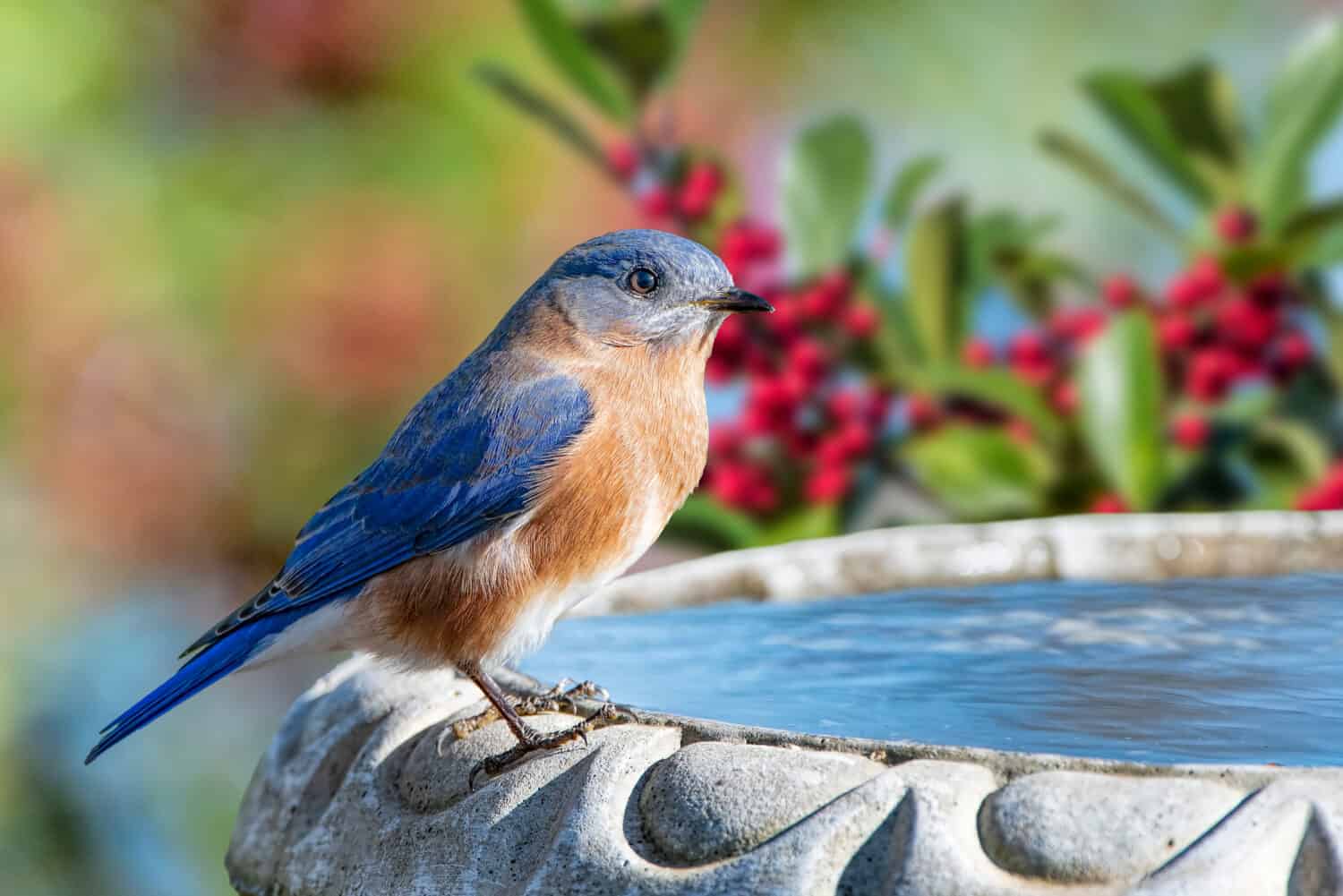Many people enjoy bird watching, and what’s more convenient than watching birds in your backyard? Bluebirds are a delightful sight in any yard, with their vibrant plumage and sweet melodies. But certain things can make them pack their bags and fly away. If you want to keep these lovely visitors around, here are some tips on what scares bluebirds away from your yard.
1. Loud Noises and Sudden Movements

Outdoor activities and lots of household noise keep bluebirds away.
©Shout It Out Design/Shutterstock.com
Bluebirds are skittish by nature, and they startle easily. Loud noises like lawnmowers, chainsaws, or slamming doors can send them darting into the sky. Similarly, sudden, rapid movements can make them nervous. When you’re out in the yard, try to move slowly and avoid sudden gestures that might disturb them. If you have small children, you’ll want to wait until a quieter time of day to explore birds in your backyard.
2. Predatory Pets
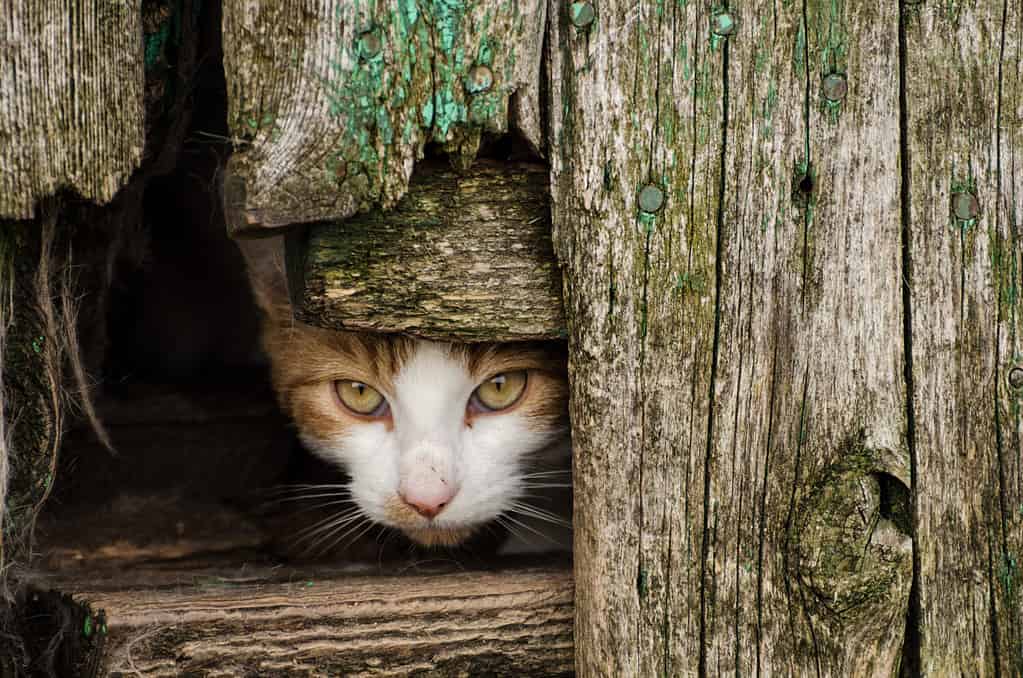
Prowling house pets can keep bluebirds from entering your oasis.
©Julie Marshall/Shutterstock.com
While your cats or dogs might be part of the family, bluebirds see them as natural predators. If your furry friends see bluebirds as playthings or potential snacks, you’ll have trouble keeping them around. Secure your pets or create a bird-friendly space away from them. This can be as simple as using a leash, a well-placed fence, or even a separate enclosed area for your pets.
3. Overly Aggressive Birds
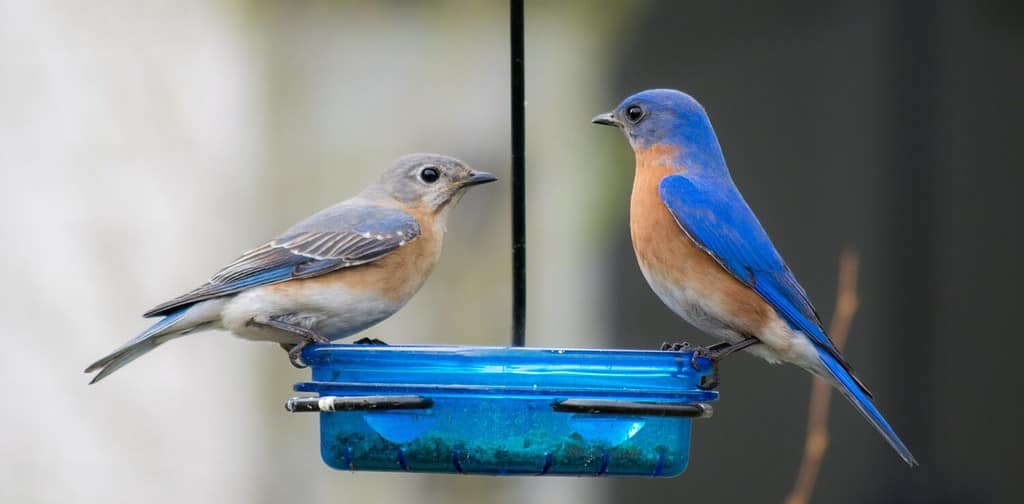
Keep birding nest boxes spread out in your yard to give everyone their territory.
©J Zdunczyk/Shutterstock.com
Bluebirds are gentle creatures and can be bullied by more aggressive bird species like sparrows or starlings. These birds may try to take over bluebird nesting sites. To prevent this, ensure your bluebird nest boxes are spaced well apart, preferably at least 100 yards from each other. Bluebirds tend to be more territorial, so this will help maintain peace.
4. Invasive Plants and Shrubs
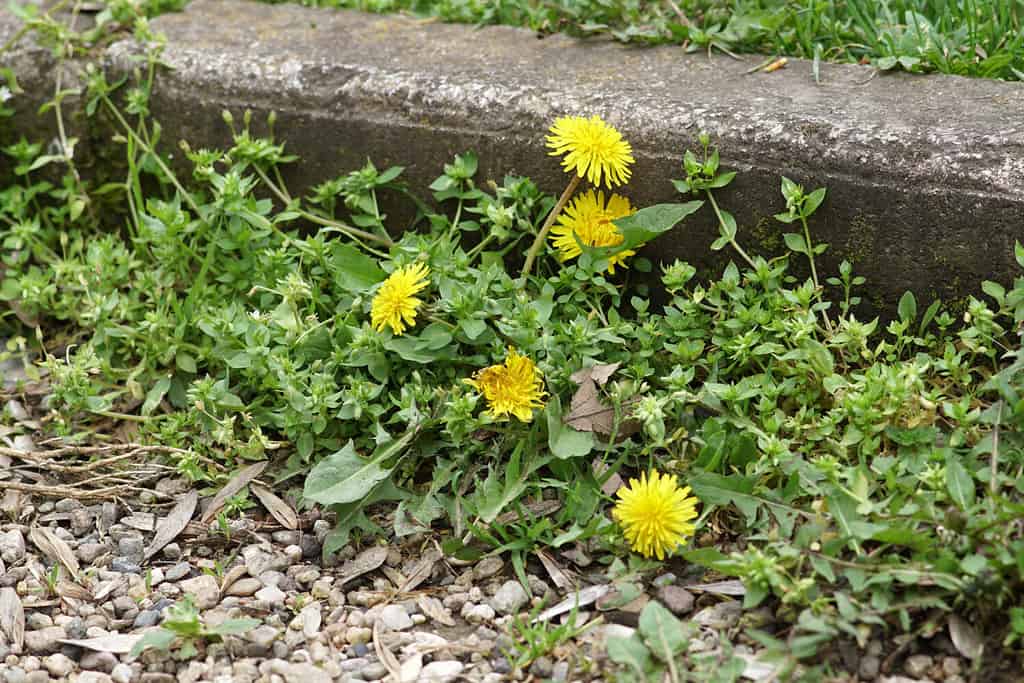
Large, clean spaces are a bluebird’s dream.
©Aleksandar Cholanchevski/Shutterstock.com
Bluebirds prefer natural, open spaces where they can find insects and berries to eat. Invasive plants and shrubs can alter the landscape, making it less appealing to bluebirds. Remove these invasive species and replace them with native vegetation. Planting native wildflowers and berry-bearing bushes like dogwood or elderberry can help attract more bluebirds to your yard.
5. Dirty Feeders and Nesting Boxes
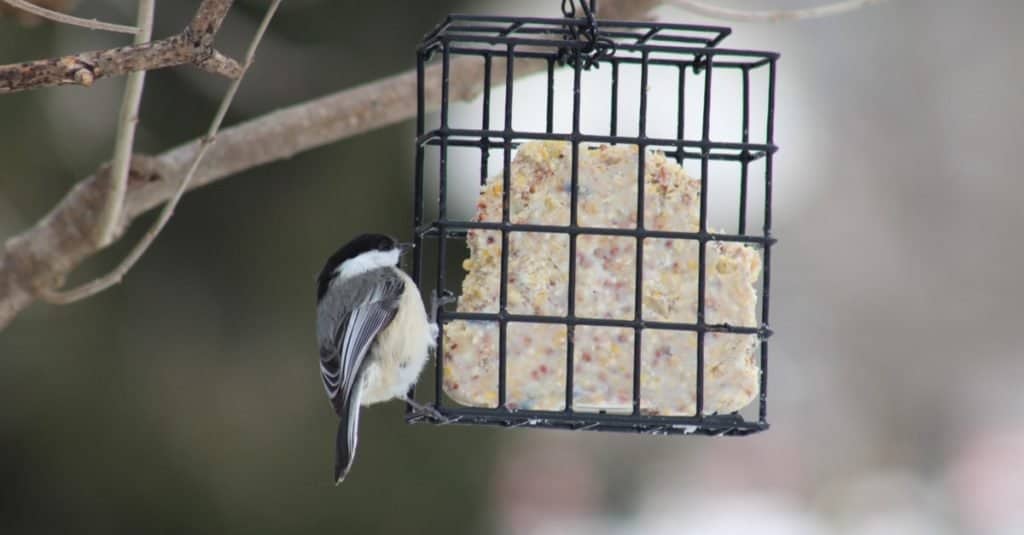
Ensure your feeders are regularly cleaned and free of mold.
©Wade Lamb/Shutterstock.com
Filthy bird feeders and nesting boxes can be a significant turn-off for bluebirds. They are clean birds by nature and won’t appreciate a messy environment. Regularly clean and sanitize your bird feeders to free them from disease and grime. Also, consider providing bluebird-specific nesting boxes, which should be cleaned out after each breeding season.
6. Pesticides and Chemicals
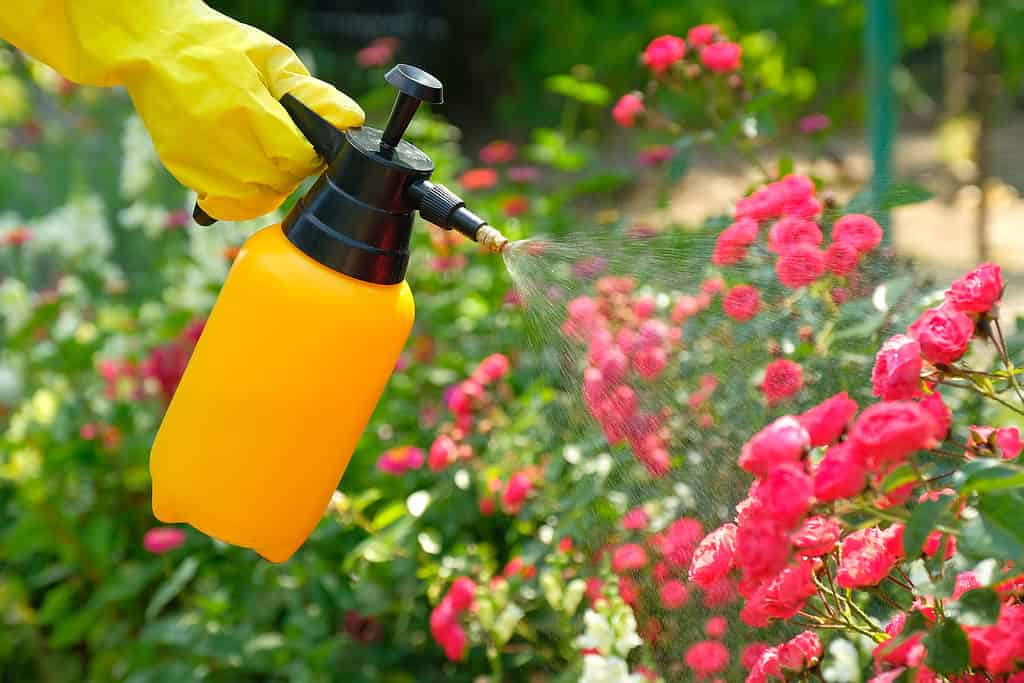
Excessive use of pesticides can run off the beautiful bluebird.
©Savanevich Viktar/Shutterstock.com
Chemical pesticides can harm the insects that bluebirds rely on for food. Opt for eco-friendly pest control methods or organic gardening practices to create a bird-friendly environment. These will help stabilize the insect population, providing a natural food source for bluebirds without compromising their health.
7. Excessive Human Presence

A bustling backyard is not the ideal habitat for bluebirds.
©RossHelen/Shutterstock.com
Bluebirds prefer a bit of solitude and quiet when they’re nesting or feeding. Even quiet people can be a distraction from the critical work of being a bluebird. Limit human traffic near their nesting spots and feeding areas to give them peace and privacy. While it’s wonderful to observe them, too much disturbance can cause them to abandon their nests or feeding sites. Use binoculars or watch from a distance to avoid scaring them away.
Ways to Attract Bluebirds to Your Yard
Now that you know what scares bluebirds away, here’s how to make your yard a bluebird haven:
Provide Nesting Boxes
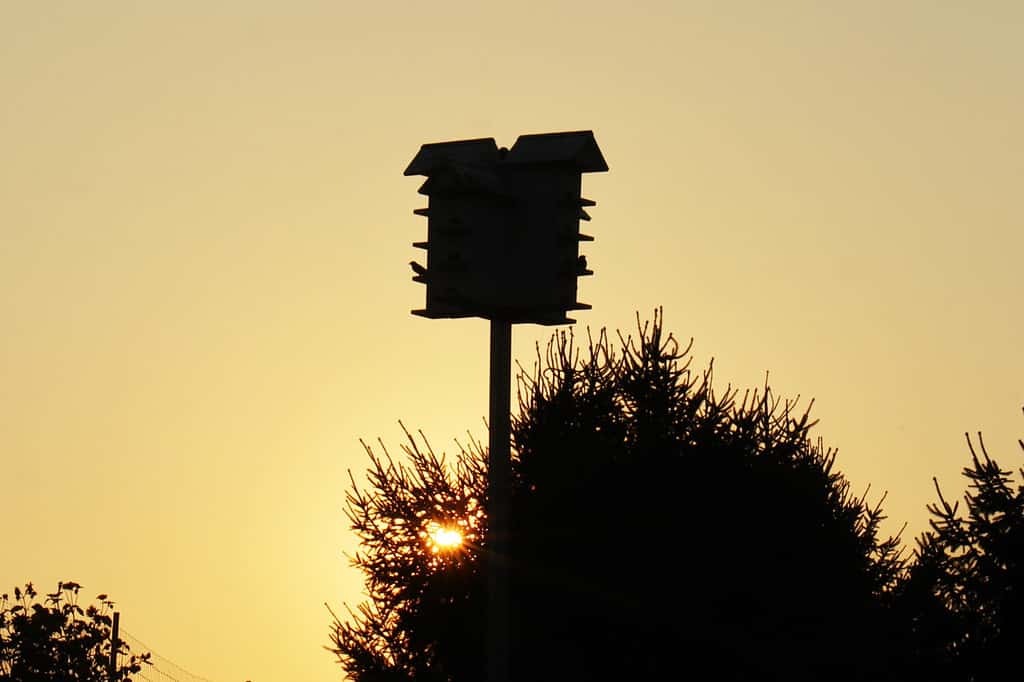
A safe place to nest is always a benefit for bluebirds.
©Jarvis Shirky/Shutterstock.com
Bluebirds love nest boxes. Place them in open areas about 5-15 feet high, facing east or north, for protection from the hot afternoon sun.
Offer Mealworms
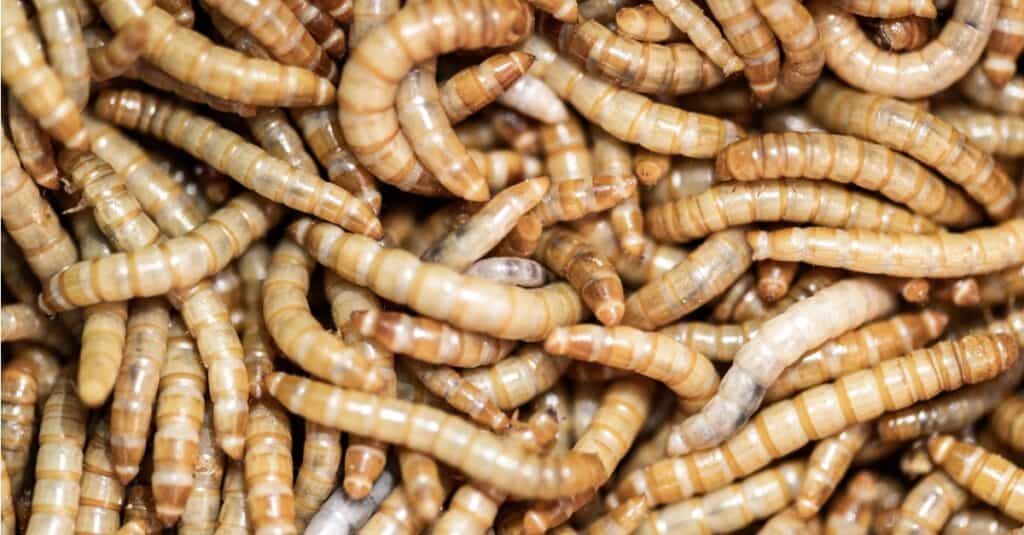
Mealworms are an extra treat bluebirds rarely can resist.
©iStock.com/OK-Photography
Bluebirds adore mealworms, so keep some on hand as a treat, especially during the breeding season when they’re feeding their young.
Fresh Water
A birdbath or shallow dish of water will quench their thirst. Keep it clean and change the water regularly.
Native Plants
Plant native berries and flowers to attract insects, a primary bluebird food source. Consider species like Eastern Red Cedar, blueberry bushes, and Black-eyed Susans.
Mow Less
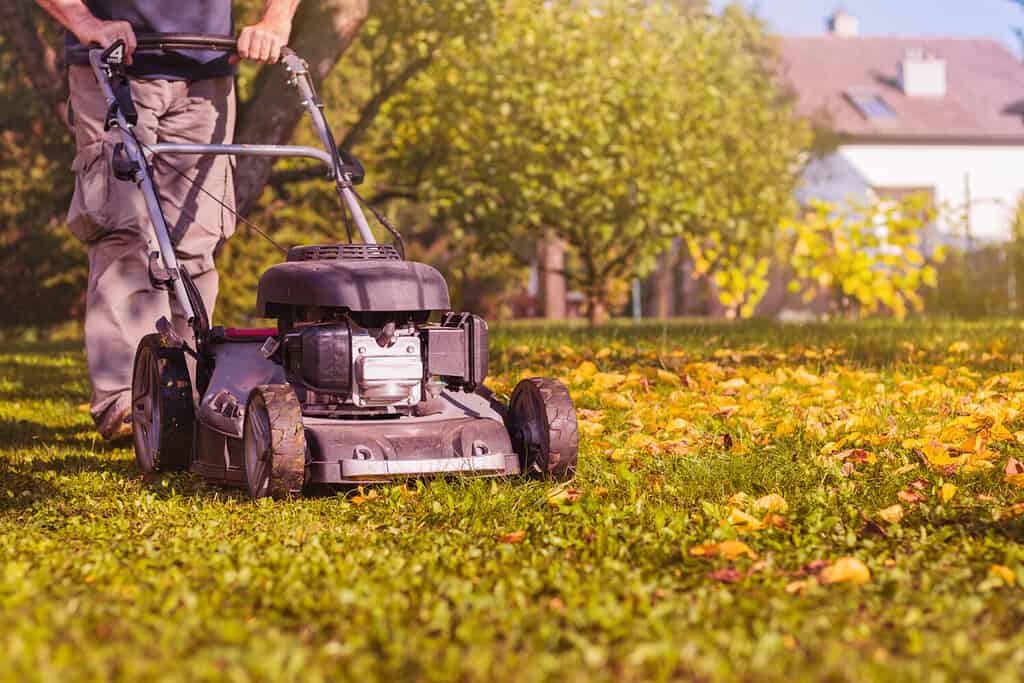
Bluebirds are drawn to taller grass.
©encierro/Shutterstock.com
Allow grassy areas to grow taller; bluebirds find insects in taller grasses. A mix of open areas and taller grasses provides a balance that bluebirds appreciate.
By understanding what spooks bluebirds and taking steps to attract them, you can transform your yard into a haven for these beautiful creatures. With some care and attention, your bluebird friends will be fluttering around, gracing your yard with their vibrant colors and sweet songs. Follow these tips, and your yard will become a bluebird paradise, ensuring you can enjoy their presence throughout the seasons.
Thank you for reading! Have some feedback for us? Contact the AZ Animals editorial team.

